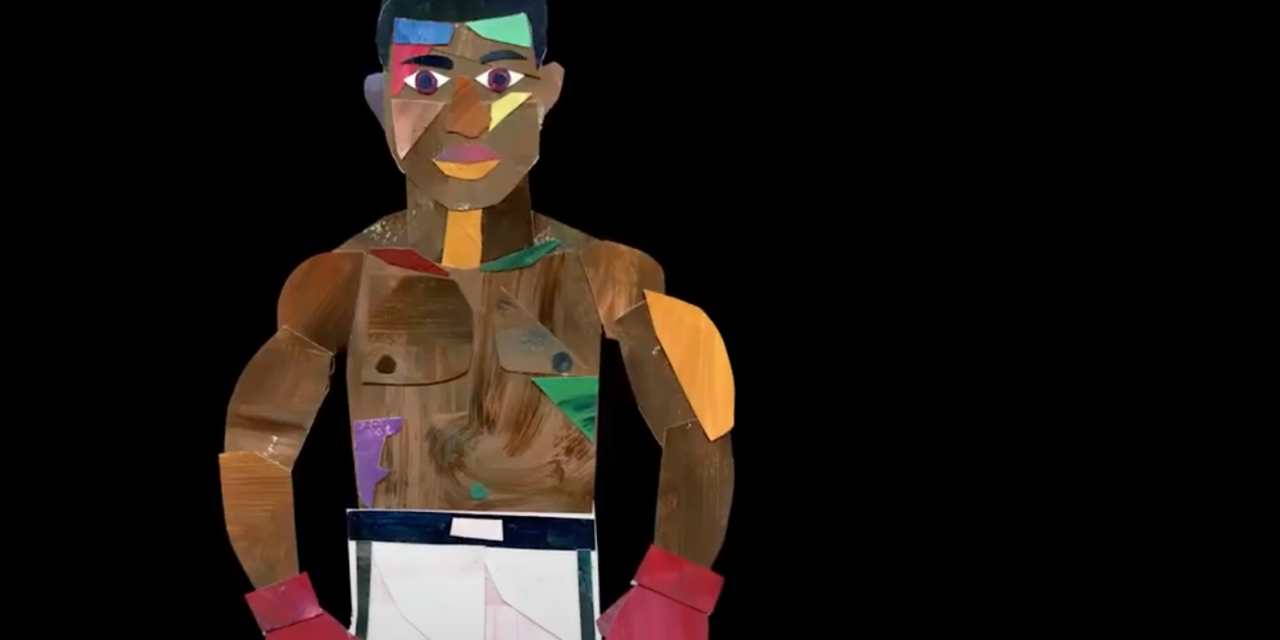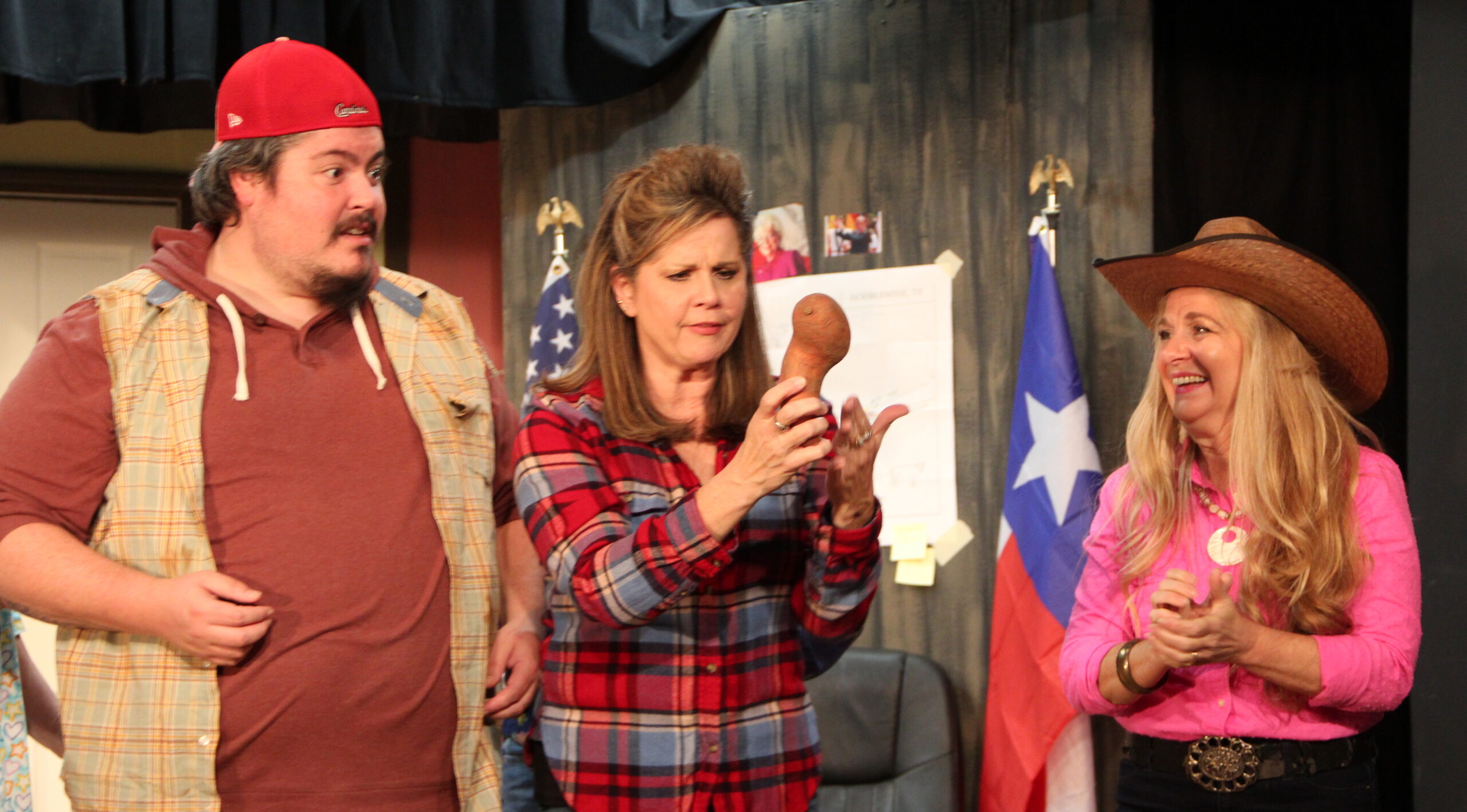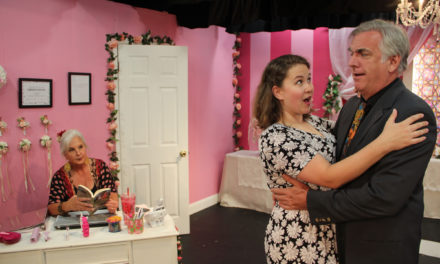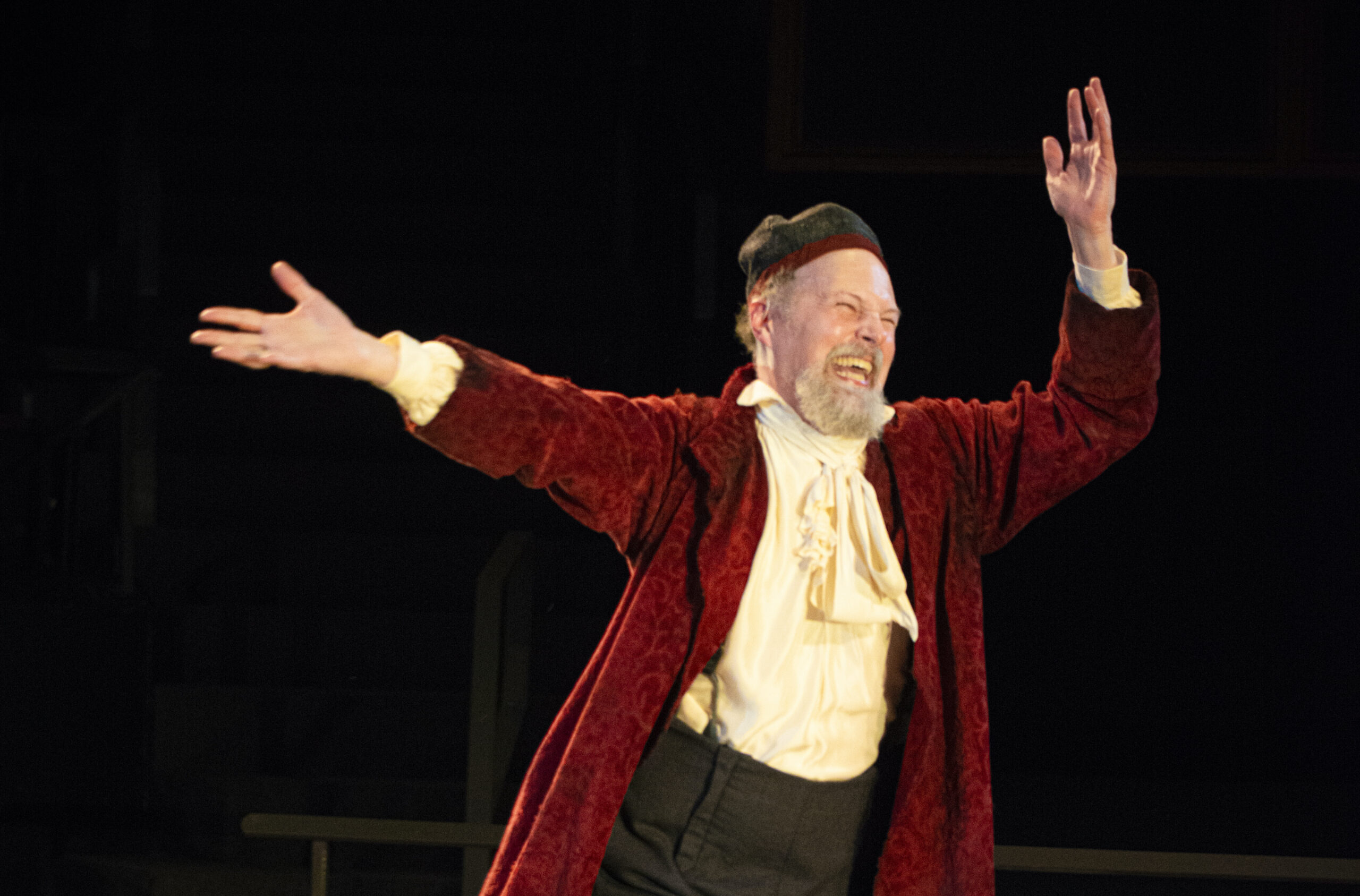Image by Andy Perez
Ali Summit
By Idris Goodwin
Directed by Robert Barry Fleming
Produced in collaboration with Crux Cooperative
Commissioned by Actors Theatre of Louisville
A review by Keith Waits
Entire contents are copyright © 2021 by Keith Waits. All rights reserved.
Louisville takes great pride in being the birthplace of Muhammad Ali, but he was a citizen of the world and the milestones of his life stand for much more than a RIver City. Playwright and poet Idris Goodwin has visited this life before, in a succinct yet resonant story about the youth of Cassius Clay, In This Corner…, which was produced by Stage One Family Theatre in 2015. The fairly conventional structure of that play is here abandoned for poetry; alternating monologues concerning Ali’s decision to request Conscientious Objector status rather than serve in the Vietnam War as a soldier.
As Kemp Powers’ play One Night in Miami, focuses on Clay, Malcolm X, Sam Cooke, and Jim Brown spending the evening together in 1964, Goodwin lights upon a summit of Black athletes reacting to Ali’s actions three years later. Jim Brown, Lew Alcindor, Bill Russell, Walter Beach are supportive, although Joe Louis compares his experience raising war funds through exhibition bouts during World War II, thinking Ali should do his part too. It’s easy to condemn that attitude through the lens of 2021, but it captures exactly the generational conflict that was at play 50 years ago. American athletes had been expected to salute the flag and serve their country, and Ali’s stand was somewhat unprecedented. At the Mexico City Olympics a year later, two African-American athletes, Tommie Smith, and John Carlos, each raised a black-gloved fist during the playing of the US national anthem, and in 2016, NFL quarterback Colin Kaepernick began kneeling during the playing of that same song to protest police brutality and racial inequality in the United States.
Like Ali, Kaepernick was called a traitor, and his career has been derailed. Ali Summit considers the foundation of such a protest and invites the audience to consider whether it is just as urgent, perhaps even more so now than in 1967. That year has long been viewed as a crucial milestone in social progress, but what was truly gained?
If Goodwin calls it a play, I’m all in, but having witnessed him read his poetry, and with Goodwin playing The Griot, a narrator fashioned after a traditional West African storyteller, Ali Summit seems more like an epic poem than conventional drama. It is cerebral but talky, intellectual but passionate, reasoned but angry. At times the language here is much closer to the break beat verse in “Can I Kick It?”, his 2019 volume of poetry.
The notion of oral tradition is reinforced by the choice to hear but not see the actors. The characters are uniquely rendered by noted Louisville artist and designer Andy Perez, who fashions collage images using paper that he has painted with different colors and textures. He achieves a form of caricature that satirically captures the details of each personality while also keeping the humor in check so that they are never cartoons. The impact is richer because most of the dialogue adopts a more thoughtful, sober tone. The images are photographed with minimal movement of the camera – this is not animation per se, but the slight panning and zoom actions emphasize the point of any given moment.
Muhammad Ali’s decision is worth examining because it is so often misunderstood. After his death, dozens of memes quoted him: “My conscience won’t let me go shoot my brother, or some darker people, or some poor hungry people in the mud for big powerful America,” but his words were frequently paired with a gag photo of him being manhandled by uniformed police officers, actually Irish Guards with whom he was joking with some 10 years after he was stripped of his championship title and not allowed to box at his athletic peak. The truth is he was not a draft dodger but STOOD UP and faced the consequences of his choice with dignity and integrity. But it has always been too easy to paint African Americans as criminals.
Running under 30 minutes, Goodwin and director Robert Barry Fleming seem well aware of the social and intellectual edification in their material and don’t overburden the audience. They left me wanting more. As is true of most of the lessons afforded us by The Greatest, Ali Summit is accessible to almost all ages. Watch it as a family.
Featuring Michael Allyn Crawford, Ananias J Dixon, Idris Goodwin, Peter Hargrave, Calvin Leon Smith & E.B. Smith.
Ali Summit
Part of the 2021 Humana Festival of New American Plays
Available to stream NOW.
Tickets are Pay What You Choose beginning at $10 at ActorsTheatre.org
Actors Theatre of Louisville
316 West Main Street
Louisville, Kentucky 40202
502- 584-1205
Actorstheatre.org
Keith Waits is a native of Louisville who works at Louisville Visual Art during the days, including being the host of LVA’s Artebella On The Radio on WXOX 97.1 FM / ARTxFM.com, but spends most of his evenings indulging his taste for theatre, music, and visual arts. His work has appeared in LEO Weekly, Pure Uncut Candy, TheatreLouisville, and Louisville Mojo. He is now Managing Editor for Arts-Louisville.com.





